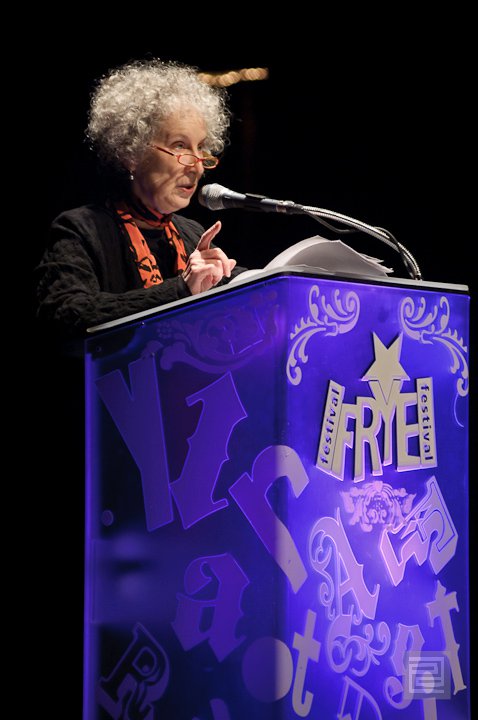httpv://www.youtube.com/watch?v=3tqK5zQlCDQ
Eliot reading “The Burial of the Dead” from The Waste Land
Today is T.S. Eliot‘s birthday (1888-1965). Eliot, besides being one of the primary poets of the age, was also the dominant literary critic in English when Frye was a young man, and had a unique position in Frye’s life and career. While Frye always admired the poetry, he regarded Eliot’s “reactionary” book After Strange Gods as a “betrayal” which made him aware of his “own responsibilities as a critic” (Northrop Frye in Conversation, 107).
Here’s Frye in his 1963 book, T.S. Eliot, on the poet’s anti-progressive view of history and his anti-Romantic view of literature:
The progressive view of history produced the post-Romantic conception of English literature which Eliot challenged. According to this, originality in poetry is an aspect of individual freedom in life; hence Shakespeare, who drew individuals so well, and Milton, a Protestant revolutionary, express the real genius of English literature. The era from Dryden to Johnson was an inferior and prosier age, but the Romantic movement re-established the main tradition, which continued in Britain through Tennyson and Swinburne, and in America through Whitman’s conception of poetry as self-expression.
Eliot’s historical view of English literature is a point-for-point reversal of the progressive one. The post-Romantic conception of “personality,” failing to distinguish the craftsman from the ordinary personality, assumes that the former is the medium or vehicle of the latter, instead of the other way around. In “Tradition and the Individual Talent” Eliot speaks of the poetic process as “impersonal,” not an expression of personality but an “escape” from it. The poet’s mind is a place where something happens to words, like a catalyser which accompanies but does not manipulate a chemical action. In other early essays, though Eliot agrees with Arnold about the immaturity of the Romantic poets, he means by “Romanticism” chiefly the popular post-Romantic residue of their influence which is contemporary with himself. This Romanticism, he says, “leads his disciples only back upon themselves.” Romanticism, then, as a creative process emanating from and returning from the ego, occupies the foreground of Eliot’s historical dialectic, the contemporary world at the bottom of the Western mountain, as far as we can get from the “anti-romantic,” “practical sense of realities” in Dante’s Vita nuova. (CW 29, 191)


